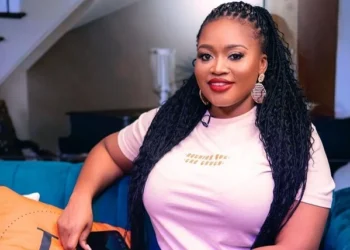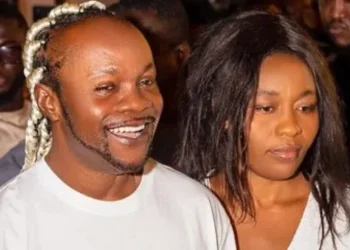Body shaming is a pervasive issue that affects individuals across various demographics, but women often bear the brunt of its impact.
The societal pressures surrounding body image lead to severe psychological, emotional, and physical consequences.
In recent years, there has been a growing awareness and vocal opposition to body shaming, particularly concerning women.
This behavior manifests in various forms, including derogatory comments about weight, shape, skin tone, or other physical attributes.
Body shaming occurs in person, through social media, or in various forms of media, including advertising and entertainment.
Nigerian actress, Tonto Dikeh has taken to social media to voice her stance against the body shaming of women.
Tonto Dikeh took to Instagram to post a common statement, “Before you body shame any woman, show us your mother,” and explained her logic behind with regards to shaming women’s appearances.
“This statement highlights the hypocrisy of men/women who body-shame women, especially those whose physical changes result from natural processes like childbirth. It calls for self-reflection and empathy, reminding them to consider the sacrifices and transformations women, including their own mothers, often go through in life. Body shaming in 2024???? That’s quite unsophisticated.”
Tonto Dikeh
One of the most significant concerns surrounding body shaming is its psychological impact on women.
Constant criticism erodes a woman’s self-worth, leading to feelings of inadequacy and inferiority.
Body shaming is strongly linked to the development of eating disorders such as anorexia, bulimia, and binge eating disorder. Women resort to unhealthy dieting practices or extreme measures to conform to societal beauty standards.
The media often promotes unrealistic beauty standards, showcasing thin, tall, and conventionally attractive women as the ideal. This narrow representation marginalizes women who do not fit this mold, leading to widespread body dissatisfaction.
The rise of social media has intensified body shaming, as platforms like Instagram and TikTok often highlight curated and edited images that promote unrealistic expectations. The constant comparison to others exacerbates feelings of inadequacy and self-loathing.
Role of Language

Language plays a crucial role in perpetuating body shaming. The use of derogatory terms and phrases to describe women’s bodies normalizes negative attitudes toward body image.
For example, terms like “fat,” “skinny,” “ugly,” or “too muscular” carry significant weight, leading to feelings of shame and embarrassment.
Advocates argue that respectful and inclusive language fosters a more positive discourse about body image.
In response to the concerns raised against body shaming, various movements, and initiatives have emerged to promote body positivity and acceptance.
Numerous social media campaigns have emerged to combat body shaming. Hashtags like #BodyPositive, #EffYourBeautyStandards, and #LoveYourBody encourage individuals to share their experiences and promote body acceptance.
These campaigns aim to create a supportive online community that celebrates body shape and size diversity.
Educational initiatives raising awareness about the harmful effects of body shaming are crucial in fostering a more inclusive society.
Schools, community organizations, and mental health professionals are increasingly incorporating body image education into their programs, helping individuals understand the importance of self-acceptance and the dangers of body shaming.
Influencers and public figures play a significant role in shaping societal beauty standards. Many influencers are now using their platforms to promote body positivity, sharing unfiltered images and discussing their struggles with body image.
Body shaming remains a pressing concern that significantly impacts women’s mental and emotional well-being.
The psychological ramifications, societal influences, and normalization of derogatory language contribute to a culture that often devalues women’s bodies.
However, the growing awareness and advocacy against body shaming signal a positive shift toward inclusivity and acceptance.
By promoting body positivity, fostering supportive communities, and challenging harmful societal norms, it work towards a future where all women feel empowered to embrace their bodies without fear of judgment or shame.
READ ALSO: Prof. Asare Decries Vigilantism, Calls for Decent Governance























